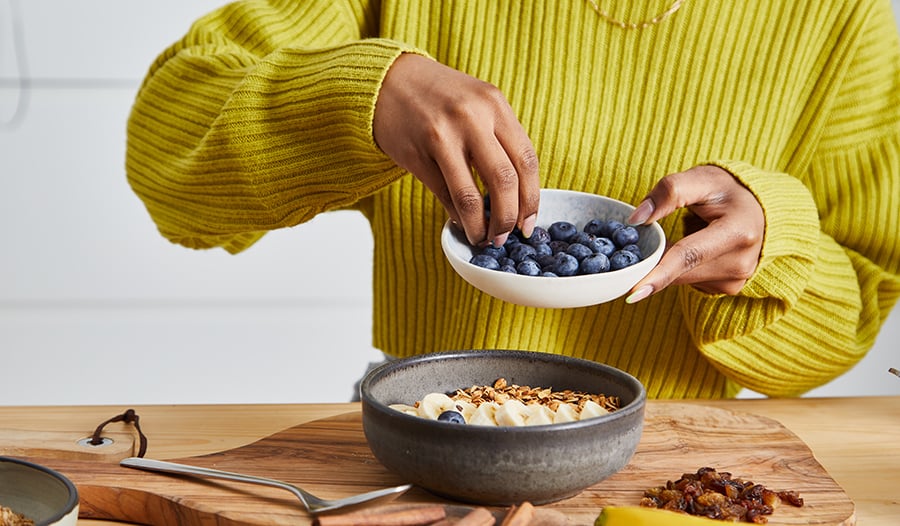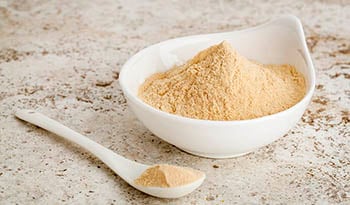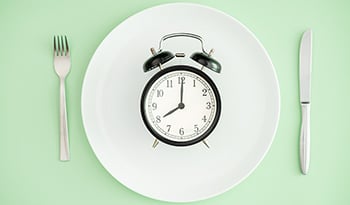Bedre frokostideer for vedvarende energi

Frokost er et viktig måltid for å "bryte fasten" etter søvnen og tilføre kroppen væske og næring til den nye dagen. Å spise riktig type frokost kan ha stor innvirkning på kognitiv funksjon, energinivå og fordøyelse, og til og med legge grunnlaget for bedre blodsukkerregulering gjennom hele dagen.
Makronæringsstoffenes rolle i en balansert frokost
En balansert frokost inneholder en blanding av makronæringsstoffer, som inkluderer protein, karbohydrater og fett.
Protein er viktig til frokost for å støtte energinivået, metthetsfølelsen og blodsukkerbalansen. Bedre frokostproteiner er belgfrukter, egg, gresk yoghurt, tofu, chiafrø og smoothies laget med et proteinpulver av høy kvalitet.
Karbohydrater er kroppens foretrukne energikilde, og bidrar til å gi næring til hjernen og musklene. De beste karbohydratene til frokost er havre, fullkorn, stivelsesrike grønnsaker som søtpoteter og frukt som bær, epler, kiwi, appelsiner og bananer.
Fett fungerer også som energikilde for kroppen. Nøtter som mandler, valnøtter og pekannøtter, samt frø som gresskar-, chia- og hampfrø, er blant de beste frokostfettene. Fett finnes også naturlig i animalske proteiner som egg og meieriprodukter.
En sunn og balansert frokost bør inneholde en avrundet blanding av protein, fett og karbohydrater for å sikre et vedvarende og balansert energinivå.
Karbohydrater
Karbohydrater er forbindelser som består av karbon-, oksygen- og hydrogenatomer ordnet i kjeder av ulik lengde. Lengden på disse kjedene avgjør om karbohydratet klassifiseres som et monosakkarid, disakkarid eller polysakkarid. "Mono" betyr én, og "sakkar" betyr sukker - monosakkarider er altså den enkleste formen for karbohydrater, som bare inneholder ett sukkermolekyl.
Enkle karbohydrater består vanligvis av monosakkarider og disakkarider. De er lette å fordøye og gir kroppen en rask energiinnsprøytning. Enkle karbohydrater er blant annet frukt, melk, meieriprodukter og bearbeidede og raffinerte søtningsmidler.
Komplekse karbohydrater er vanligvis polysakkarider som består av stivelse, fiber og glykogen. De tar lengre tid å fordøye og gir derfor kroppen en mer vedvarende energikilde.1 Komplekse karbohydrater er blant annet stivelsesrike grønnsaker, belgfrukter og fullkornsprodukter.
Karbohydrater spiller en viktig rolle når det gjelder å gi energi og drivstoff til hjernen og musklene. Å spise riktig type karbohydrater kan forbedre energinivået, humøret, kognisjonen, fordøyelsen og tarmens regelmessighet.
For en balansert frokost bør du velge komplekse karbohydrater som fullkorn som havregryn eller stivelsesrike grønnsaker som søtpoteter i en frokostrøsti. Du trenger ikke å unngå enkle karbohydrater, men kombiner dem med protein, fett og komplekse karbohydrater for å få bedre blodsukkerregulering og vedvarende energi.
Gode komplekse karbohydrater for en balansert frokost inkluderer:
- Kjevlet havre eller stålkuttet havre
- Brun ris
- Fullkornsbrød eller frokostblandinger
- Belgfrukter som bønner og linser
- Stivelsesrike grønnsaker som søtpoteter
Minimer bearbeidede frokostblandinger, frokostbarer og proteinbarer, samt proteinpulver eller -blandinger med høyt innhold av tilsatt sukker. Når du spiser frokostpakker, bør du velge matvarer som inneholder mye protein og fiber, men lite tilsatt sukker.
Proteiner
Proteiner er aminosyrekjeder som består av karbon-, hydrogen-, oksygen- og nitrogenatomer. Det finnes omtrent 20 aminosyrer. Ni er essensielle, noe som betyr at kroppen ikke kan lage dem selv, og at vi må få dem inn gjennom maten. De øvrige 11 er ikke-essensielle, slik at kroppen kan syntetisere dem på egen hånd.
En rekke matvarer gir protein , inkludert animalske kilder som kjøtt, fjærkre, fisk, egg og meieriprodukter. , inkludert animalske kilder som kjøtt, fjærkre, fisk, egg og meieriprodukter, og plantebaserte kilder som nøtter , frø, belgfrukter og , frø, belgfrukter og noen kornsorter. Protein spiller en viktig rolle i mange kroppsfunksjoner, og bidrar til vekst og utvikling, blodlevring og oppbygging av skjelett, hud og hår.2
Fett
Fett er forbindelser som består av triglyserider, fosfolipider og steroler. En fettsyre består av karbonatomer med hydrogenatomer. Antall hydrogenatomer i kjeden avgjør om en fettsyre er mettet, enumettet eller flerumettet.
Matkilder til fett inkluderer animalske proteiner som kjøtt, fjærkre, fisk, melk og meieriprodukter, samt plantebaserte kilder som nøtter, frø, avokado, olivenog oljer. og oljer. Fett er viktig for å beskytte organer, støtte hormonproduksjonen og absorbere næringsstoffer som fettløselige vitaminer. Det er også en viktig energikilde for kroppen.3
Energiøkende frokostmat
Begynn å lage en bedre frokost med ekte, hele matvarer, som naturlig nok er mer næringsrike enn pakkede og bearbeidede alternativer. Energigivende frokostmat inkluderer havregryn, egg, nøtte- eller frøsmør, nøtter og frø, avokado og gresk yoghurt. nøtter og frø, frukt, avokado og gresk yoghurt. Disse matvarene har alle det til felles at de er kilder til protein, sunt fett og/eller karbohydrater av høy kvalitet som gir en varig energiboost når de spises sammen.
Havregryn
Havregryn er en kraftfull frokostmat som gir en boost av energigivende komplekse karbohydrater, rikelig med fiber og en liten mengde protein for bedre blodsukkerregulering. Velg valset havre eller stålkuttet havre fremfor hurtighavre. Kjevlet havre og stålkuttet havre er mindre bearbeidet og tar lengre tid å fordøye, noe som bidrar til å unngå blodsukkerstigninger.
For en balansert frokost bør du tilsette protein og fett for å gjøre havregrøten mer komplett. Prøv å røre inn litt nøttesmør, chia- eller gresskarkjerner, eller kombiner havregrøten med egg, gresk yoghurt eller en proteinsmoothie med lavt sukkerinnhold. Du kan også tilsette havre i smoothiene dine for å øke fiberinnholdet!
Mandelsmør
Mandelsmør er laget av malte mandler og er en naturlig kilde til protein, fiber og mange vitaminer og mineraler, som antioksidanten vitamin E. Når mandelsmør inngår i en næringsrik frokost, bidrar det til å gi vedvarende energi, spesielt når det kombineres med en karbohydratkilde som havregryn, banan, eple eller ristet brød.
Prøv å tilsette en spiseskje mandelsmør i en smoothie, på vafler eller pannekaker, ristet brød, havregrøt eller i hjemmebakt frokostmat som mandelsmør-proteinkaker! ! Mandelsmør kan nytes glatt, i grove biter, naturell eller naturlig smaksatt med honning eller sjokolade. For en sunnere frokost bør du unngå nøttesmør med hydrogenerte oljer eller som er tilsatt mye sukker.
Egg
Egg er en frokostklassiker. Et egg inneholder ca. 6 gram protein samt vitaminer og mineraler som jern, selen og vitamin B12.4 Siden egg ikke inneholder fiber, bør du kombinere dem med et komplekst karbohydrat som søtpotet, havregryn eller ristet brød for å gjøre frokosten mer komplett.
Når du handler egg, bør du velge økologiske, beiteoppdrettede eller frittgående for å få en sunnere frokost. Egg fra beitebruk er mer næringsrike enn konvensjonelle egg fordi hønas kosthold påvirker næringsinnholdet i egget og eggeplommen. I tillegg til eggerøre, solsiden opp og omelett kan egg også bakes inn i hjemmelagde frokostkaker, brød eller muffins for å få i seg ekstra næring.
Gresk yoghurt
Gresk yoghurt lages ved å sile mysen fra tradisjonell yoghurt, noe som gir en tykkere yoghurt med høyere proteininnhold. En porsjon gresk yoghurt inneholder alt fra 15 til 20 gram protein, avhengig av merke.5 En proteinrik frokost er ideell for å opprettholde energinivået. Protein tar lengre tid å fordøye enn karbohydrater, så det gir langsom, jevn energi i stedet for en blodsukkerstigning og -krasj.
Tilsett sunt fett og karbohydrater i gresk yoghurt for å øke næringsinnholdet og smaken. Bær, banan, eple i terninger, chiafrø, gresskarkjerner og kanel er alle gode tilsetninger. Se etter gresk yoghurt laget av kumelk, geitemelk eller til og med melkefri gresk yoghurt laget av mandel- eller kokosmelk.
Bær
Bær er en frukt med lavt sukkerinnhold og et høyt innhold av antioksidanter og fiber. Bær er den ideelle frokostfrukten for å minimere blodsukkerstigninger, basert på næringsprofilen og den lave glykemiske indeksen. Tilsett bær i smoothies, på havregrøt eller spis dem som de er sammen med egg og avokado toast.
Bær, som blåbær, bjørnebær, bringebær og jordbær, er nydelige når de nytes ferske, spesielt i vekstsesongen. Hvis du vil nyte bær utenfor sesongen, kan du kjøpe frosne bær, som har samme næringsinnhold som friske bær. Frosne bær kan enkelt tilsettes i smoothies eller tines og nytes på havregrøt, i bakverk eller røres inn i yoghurt.
Bærpulver er en deilig og praktisk måte å tilsette en konsentrert boost av bærenes helsefordeler i en smoothie! Bær er en frukt med høyt fiberinnhold, og bidrar også til bedre tarmhelse, bedre mikrobiell diversitet og regelmessighet i tarmen.
Avokado
Avokado er en kremet frukt fullpakket med fiber og sunt enumettet fett som er kjent for å støtte hjerne- og hjertehelsen. Sunt fett som avokado, nøtter og frø er viktige komponenter i en balansert frokost. De tilfører ikke bare en rekke næringsstoffer, men bidrar også til å bremse fordøyelsen og til bedre blodsukkerregulering. Tilsett avokado i smoothies, på toast eller sammen med egg.
Bananer
Bananer er en kremet frukt fullpakket med fiber, vitaminer og mineraler. Bananer er et enkelt karbohydrat som er perfekt som mellommåltid før trening og tidlig om morgenen, og som gir en rask energiinnsprøytning. Bananer kan inngå i en balansert, energigivende frokost ved å kombinere dem med mandelsmør, peanøttsmør, egg eller andre matvarer som er rike på protein eller fett. Tilsett bananer i en smoothie. , på toppen av havregrøt, eller skjær dem i runde biter og smør dem med mandelsmør som et deilig tilbehør til eggerøre.
Chiafrø
Chiafrø er rike på protein, fiber og omega-3-fettsyrer som er kjent for å støtte hjerne- og hjertehelsen. En porsjon chiafrø - vanligvis 2,5 spiseskjeer - inneholder 5 gram protein, 10 gram fiber og 9 gram fett.6 Det høye fiber- og proteininnholdet bidrar til å gi vedvarende energi og gir deg en naturlig metthetsfølelse etter et måltid. Fylt med helsefordeler. kan chiafrø nytes i smoothie, havregrøt, overnight oats, som chiapudding eller i hjemmelaget frokostbrød eller muffins.
Takeaway
Å velge en velbalansert frokost er nøkkelen til bedre energinivå, blodsukkerregulering og generell helse. De fleste ferdiglagde frokostprodukter mangler de næringsstoffene hjernen og kroppen din trenger for å starte dagen på best mulig måte. Unngå eller minimer innpakkede, bearbeidede frokostprodukter, og innta i stedet ekte, hele matvarer som er naturlig rike på makronæringsstoffer som protein, fett og fiber, i tillegg til viktige mikronæringsstoffer som vitaminer og mineraler.
Referanser:
- Karbohydrater | American Heart Association. Besøkt 22. mai 2025.
- Hvor mye protein bør jeg spise? Besøkt 22. mai 2025.
- Fett i kosten | American Heart Association. Besøkt 22. mai 2025.
- Egg, klasse A, store, hele - Næringsstoffer - Foundation | USDA FoodData Central. Besøkt 22. mai 2025.
- Yoghurt, gresk, naturell, fettfri - Næringsstoffer - Foundation | USDA FoodData Central. Besøkt 22. mai 2025.
- Frø, chiafrø, tørket - Næringsstoffer - SR Legacy | USDA FoodData Central. Besøkt 22. mai 2025.
ANSVARSFRASKRIVELSE:Velværesenteret har ikke til hensikt å gi diagnoser ...
















































































 Innholdsfortegnelse
Innholdsfortegnelse















